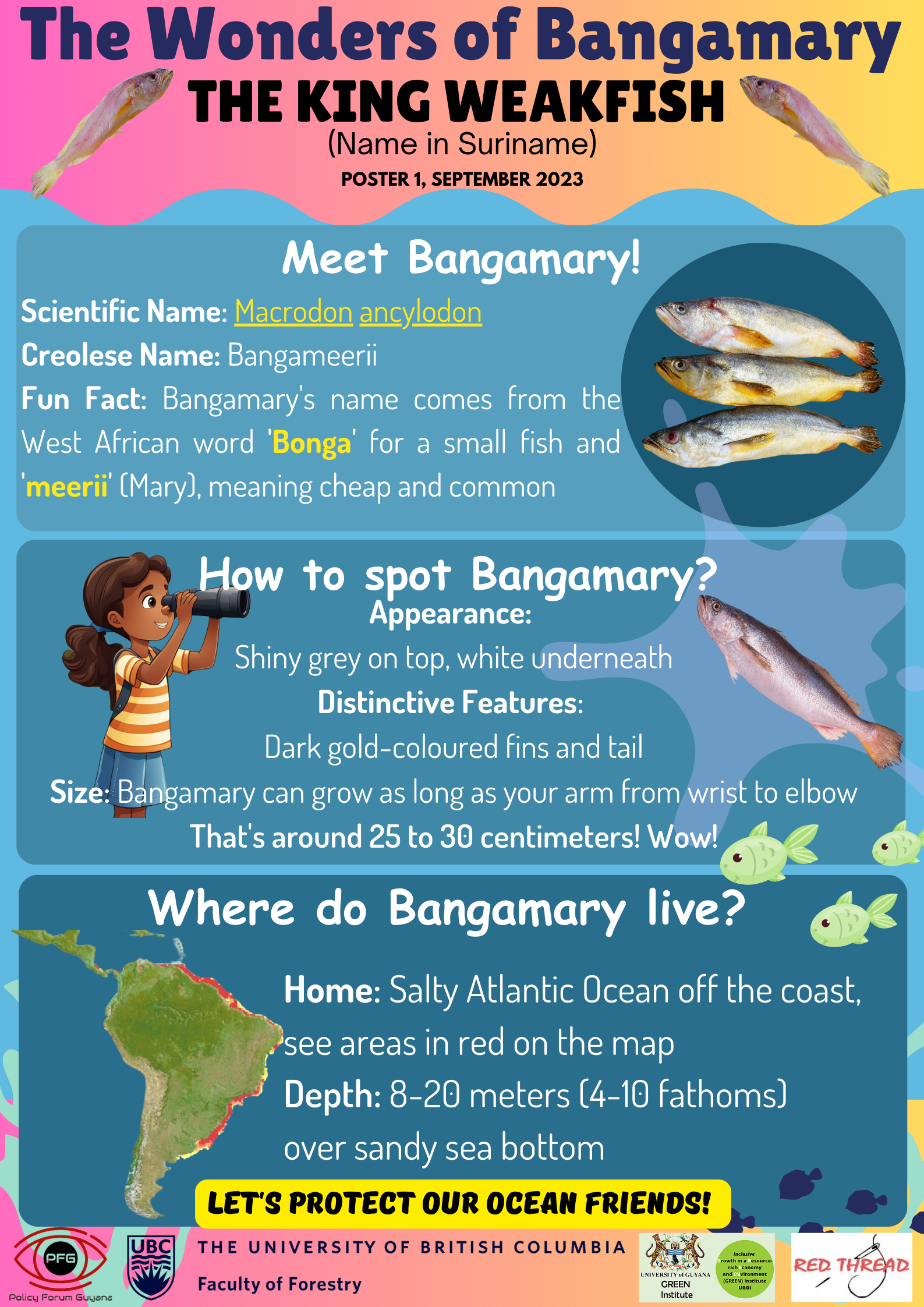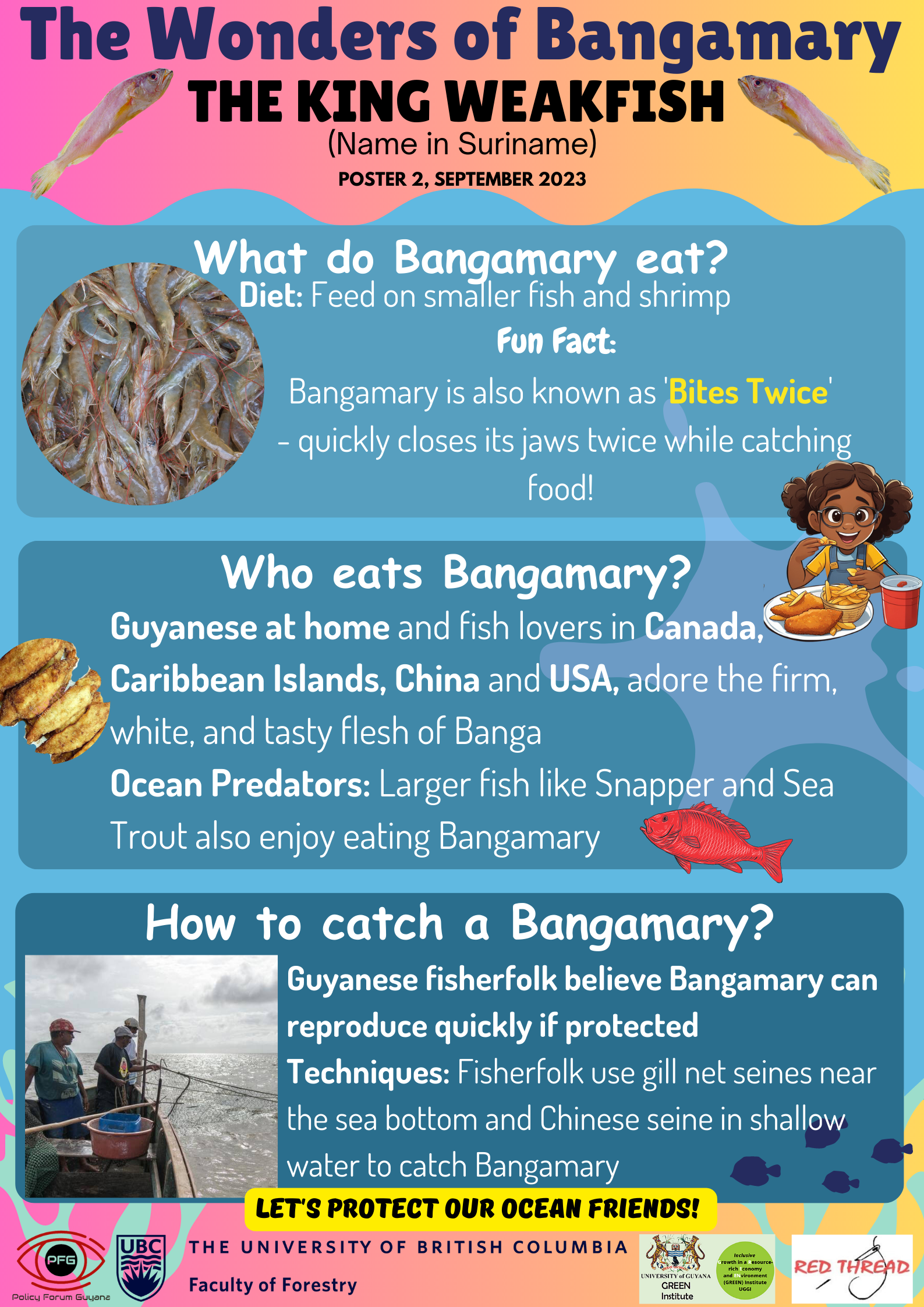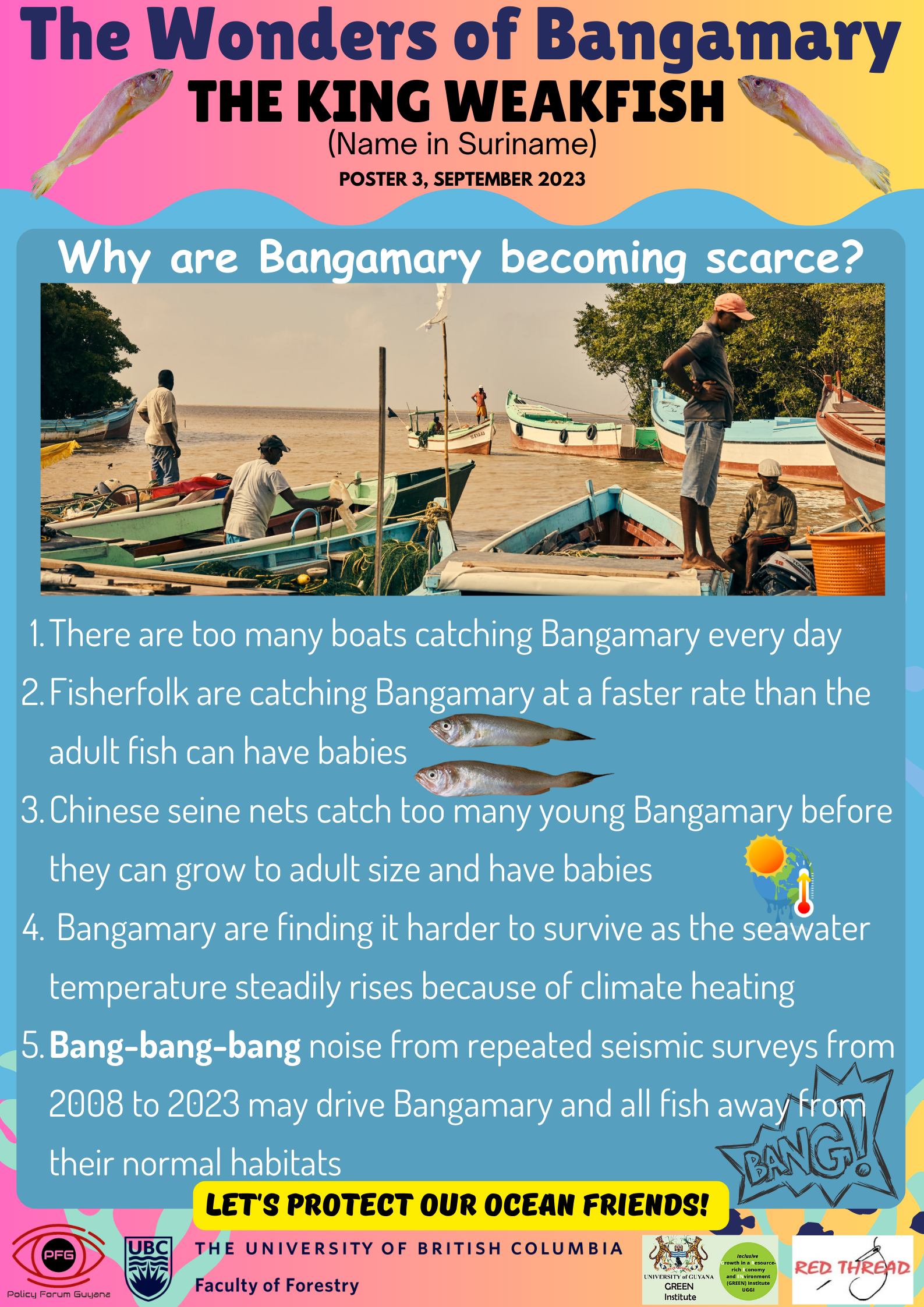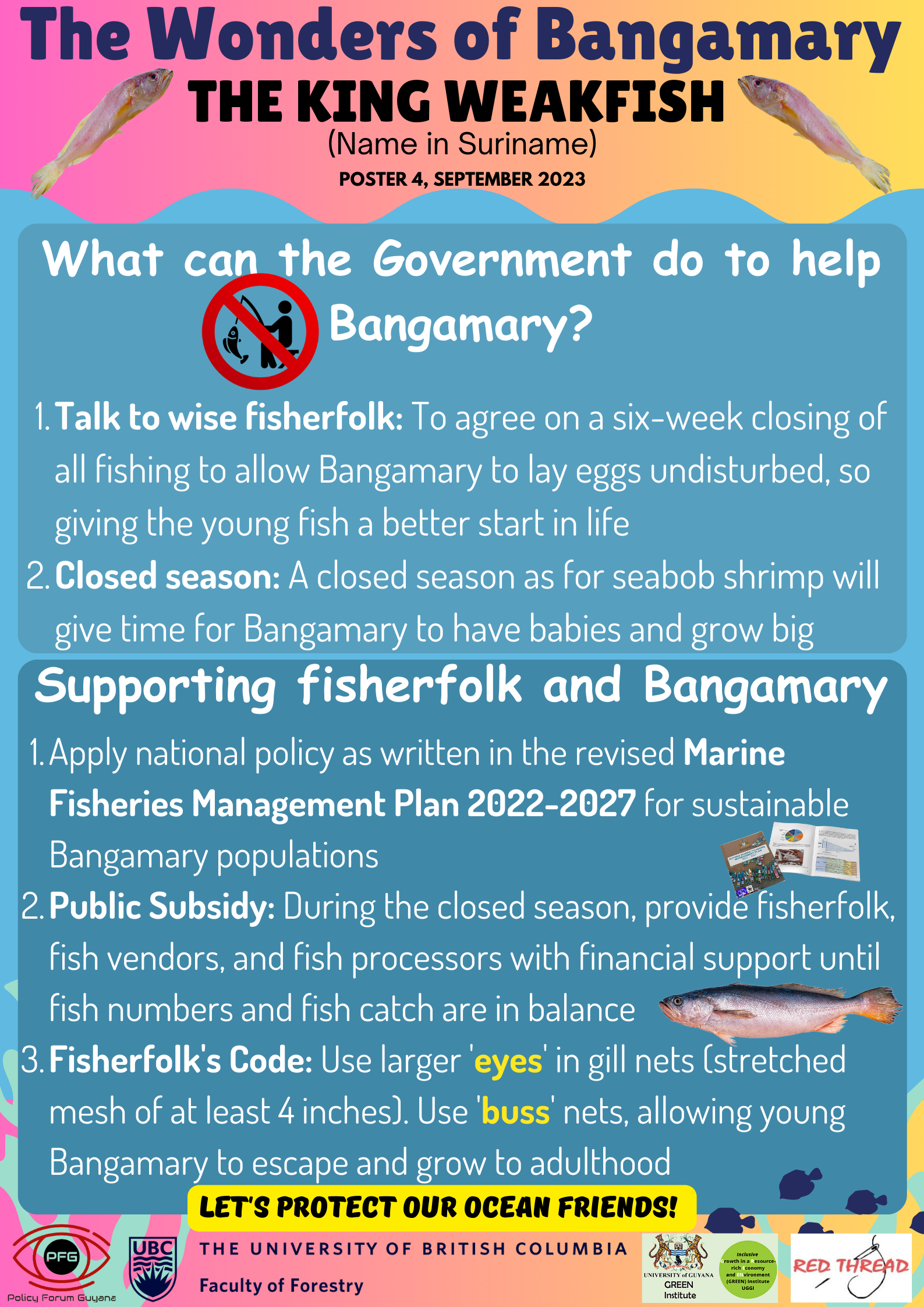



____________________________________________________________________________________________________
These four posters focus on Bangamary (scientific name Macrodon ancylodon, also known as King Weakfish in neighbouring Suriname), the most affordable fish in Guyanese coastal markets and available throughout the year. The posters are part of the public dissemination of research findings supported by a Canadian Government SSHRC Insight grant (2022-2024) awarded to Dr Janette Bulkan, Associate Professor in the Faculty of Forestry, University of British Columbia. The University of Guyana’s GREEN Institute is a collaborating partner on this project which is investigating ‘Best practices in artisanal fisheries in the Guiana Shield to support local communities and ecosystem resilience.’ The posters are being shared with fisherfolk organisations, schools and civic organisations.
Guyanese traditionally consume twice as much fish per year as the global average, so the complaints in 2019-2022 of a sharp decline in landed fish catch and a rise in fish prices affected much of the national population (c.780,000) and made local news.
The local fishers noted that the decrease in landed fish catches began around the same time as the beginning of offshore oil production, at the end of 2019. The fishers – about 5,000 captains and crew – went to sea, often in boats owned or captained or crewed by other members of the wider family, from as young as age 7, and know no other trade.
Coastal fishing is an economically important activity along the whole Atlantic coast of Guyana (435 km), with around 1,200 artisanal wooden boats of which perhaps half are officially registered and annually licensed to operate. An estimated 1,000-2,000 processors and vendors of landed fish distribute the fish to consumers in Guyana, and to one of the fish processing and exporting companies. The three largest industrial scale companies process fish for export, to the large diaspora of Guyanese mainly in eastern Canada and the USA, and also to China and the Caribbean Islands.
Sign up for our newsletter to get the latest news and upcoming events.
Views and opinions expressed on this website are those of the contributors and do not necessarily reflect the official policy or position of the University.
© GREEN Institute | University of Guyana
Site designed by Allison Cassels
